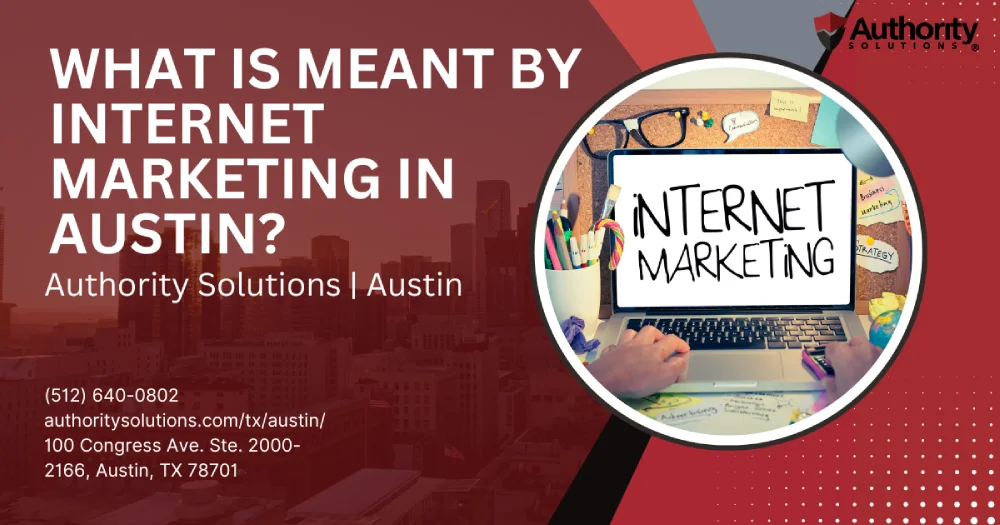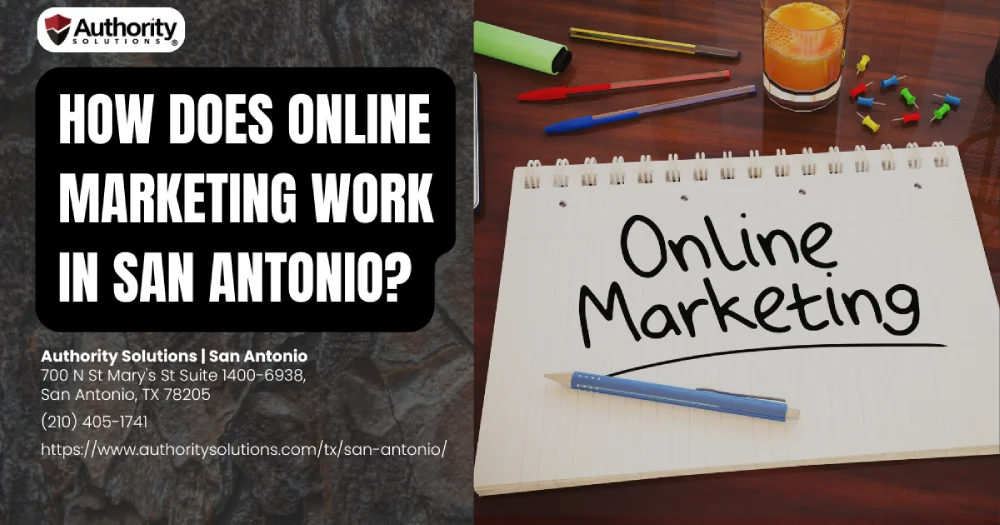Harnessing The Potential Of Ai: Artificial Intelligence In Internet Marketing Services
Are you looking to take your internet marketing strategy to the next level? Look no further than artificial intelligence (AI). With its ability to analyze data, personalize content, and even predict future trends, AI has become an increasingly valuable tool for businesses of all sizes. In this article, we will explore how AI can help you harness the full potential of internet marketing services.
As a marketer, you know that personalized messaging is key to engaging with your audience. But how do you achieve true personalization at scale? This is where AI comes in. By analyzing data from various touchpoints across your website and social media channels, AI algorithms can determine individual preferences and behaviors. This allows you to tailor content and offers specifically to each user, increasing the likelihood of conversion. But personalization is just one way that AI can enhance your marketing strategy. Keep reading to learn more about how this technology can transform your approach to online advertising.
An Overview of AI in Internet Marketing Services
You're probably wondering how AI can revolutionize your internet marketing services, but let me tell you, it's all about utilizing intelligent algorithms to analyze data and provide personalized experiences for your customers. By harnessing the potential of AI, you can gain valuable insights into consumer behavior that were previously impossible to obtain. This information can then be used to create targeted campaigns that resonate with your audience on a deeper level.
One area where AI shines is in predictive analytics. With machine learning algorithms, you can analyze vast amounts of data to predict future trends and behaviors. By understanding what motivates your customers, you can tailor your marketing campaigns to meet their needs before they even know they have them. This not only increases engagement but also boosts customer satisfaction and loyalty.
Another way in which AI can improve your internet marketing services is through chatbots and virtual assistants. These tools use natural language processing to interact with customers in real-time, providing instant support and feedback. By automating these processes, you free up more time for other important tasks while still ensuring that your customers are well taken care of. Personalization and targeting are just two examples of how harnessing the power of AI can transform your internet marketing services into a highly effective strategy that drives results like never before.
Personalization and Targeting
By tailoring content to individual preferences, businesses can create a more engaging and personalized experience for their customers. Personalization and targeting are key components of an effective internet marketing strategy. With advancements in AI technology, it is now possible to analyze vast amounts of data about consumer behavior and preferences to deliver targeted messaging that resonates with each individual customer.
To evoke an emotional response in your audience, consider the following:
- Customized recommendations based on past purchases or browsing history can make customers feel understood and valued.
- Personalized email campaigns that address recipients by name and offer relevant content can increase open rates and drive conversions.
- Targeted social media ads that align with users' interests and behaviors can feel less intrusive than generic advertising.
- Interactive chatbots that use machine learning to understand natural language can provide instant support tailored to each user's needs.
- Dynamic pricing models that adjust based on factors like location, time of day, or purchase history can make customers feel like they're getting a personalized deal.
Incorporating personalization and targeting into your internet marketing strategy may require some adjustments to your current approach. However, the long-term benefits of creating a more engaging experience for your customers are clear.
As you begin implementing these tactics in your own business, keep in mind the importance of tracking data analysis and insights. By understanding how different segments of your audience respond to personalized messaging, you can further refine your strategy for maximum impact on both engagement levels and revenue growth.
Data Analysis and Insights
Get ready to discover key insights about your audience by analyzing data from their behavior and preferences. With the help of AI, you can collect and analyze vast amounts of data in real-time, allowing you to gain a deep understanding of your target customers. By doing this, you can create highly personalized marketing campaigns that resonate with them on a deeper level.
Data analysis and insights are crucial for marketers who want to stay ahead of the competition. AI-powered tools can help you identify trends, patterns, and correlations in customer data that would be impossible to detect manually. These insights can inform all aspects of your marketing strategy, from product development to customer service.
Utilizing AI for data analysis and insights is essential for any marketer who wants to succeed in today's competitive landscape. By leveraging the power of machine learning algorithms and predictive analytics, you can create targeted campaigns that deliver results. But what does the future hold for AI in marketing? Let's explore further in the next section.
The Future of AI in Marketing
Imagine how AI will transform the way marketers reach and engage with their target audience in the future. With machine learning, predictive analytics, and other AI-powered tools becoming more sophisticated each day, marketing strategies will become more personalized than ever before. Here are three ways that the future of AI in marketing could unfold:
- Real-time personalization: As AI algorithms learn from customer behavior patterns, they will be able to provide marketers with deeper insight into what customers want and need in real-time. Marketers can then use this data to create highly customized campaigns that resonate with each individual customer.
- Automated content creation: With advancements in natural language processing and machine learning, AI systems can now generate high-quality content at scale. This means that marketers will be able to produce relevant and engaging content quickly and cost-effectively, without sacrificing quality.
- Better decision-making: By analyzing vast amounts of data quickly and accurately, AI can help marketers make better decisions about everything from budget allocation to campaign optimization. This means that businesses of all sizes can compete on a level playing field by leveraging the power of data-driven insights.
As you explore these possibilities for the future of AI in marketing, consider how you might implement these advanced technologies into your own marketing strategy without losing sight of your brand's core values and messaging. In the next section we'll discuss some practical tips for integrating AI into your marketing efforts seamlessly.
Implementing AI in Your Marketing Strategy
To effectively integrate AI into your marketing strategy, you must first understand the unique needs and behaviors of your target audience. This means conducting thorough research, analyzing data from various sources, and identifying patterns in consumer behavior. Once you have a clear understanding of who your customers are and what they want, you can begin to explore how AI can help you reach them.
One way to implement AI in your marketing strategy is through personalization. By using machine learning algorithms, you can analyze customer data to create personalized experiences for each individual. For example, an e-commerce site might use AI to recommend products based on a customer's browsing history or purchase history. This not only increases the likelihood of making a sale but also enhances the overall customer experience.
Another way to incorporate AI into your marketing strategy is through chatbots and virtual assistants. These tools use natural language processing (NLP) to communicate with customers and provide them with relevant information or assistance. Chatbots can be used on social media platforms or websites to answer common questions or resolve issues quickly and efficiently. Virtual assistants like Amazon's Alexa or Google Home can be integrated with other smart devices to provide a seamless user experience across multiple channels.
Frequently Asked Questions
What are the potential ethical concerns associated with using AI in internet marketing services?
You should be aware of potential ethical concerns when implementing AI in internet marketing services. These include data privacy, algorithmic bias, and the use of personal information for targeted advertising. It is important to consider these issues to ensure responsible and transparent use of AI technology.
How does the use of AI in internet marketing services impact consumer privacy?
The use of AI in internet marketing services can have significant impacts on consumer privacy. The data collected through AI-powered tools must be handled with care to avoid violating ethical boundaries and ensure the safety of personal information.
What types of businesses are best suited for implementing AI in their marketing strategies?
To implement AI in marketing strategies, identify businesses with large data sets and a need for personalized customer experiences. E-commerce, retail, and finance industries are among the best suited. Stay aware of ethical considerations to avoid negative impacts on consumers.
How can companies ensure that their AI-powered marketing efforts are not perceived as intrusive or annoying by consumers?
To ensure that your AI-powered marketing efforts are not perceived as intrusive or annoying by consumers, optimize the relevance and personalization of your communication. Use data ethically and be transparent about how you're using it. Test and monitor consumer response to adjust accordingly.
What skills and knowledge are required for professionals working in AI-powered internet marketing services?
To excel in AI-powered internet marketing, you need knowledge of data analytics, machine learning, and programming. Additionally, skills such as creativity, critical thinking, and adaptability are key to staying ahead in an ever-evolving field.
Conclusion
In conclusion, AI has immense potential when it comes to internet marketing services. It provides businesses with the opportunity to personalize and target their audience effectively, providing a more efficient and relevant experience for users. With the ability to analyze vast amounts of data, AI can provide valuable insights into customer behavior and preferences.
As we look towards the future of AI in marketing, it is clear that this technology will continue to evolve and improve. Businesses need to stay ahead of the curve by implementing AI into their marketing strategies. By doing so, they can potentially see higher conversion rates, better engagement levels, and increased revenue.
Overall, as artificial intelligence continues to advance in areas such as machine learning and natural language processing, we can expect even more exciting developments in internet marketing services. The possibilities are endless – from chatbots that engage with customers on websites to personalized email campaigns – businesses that harness the power of AI are poised for success in today's ever-changing digital landscape.









